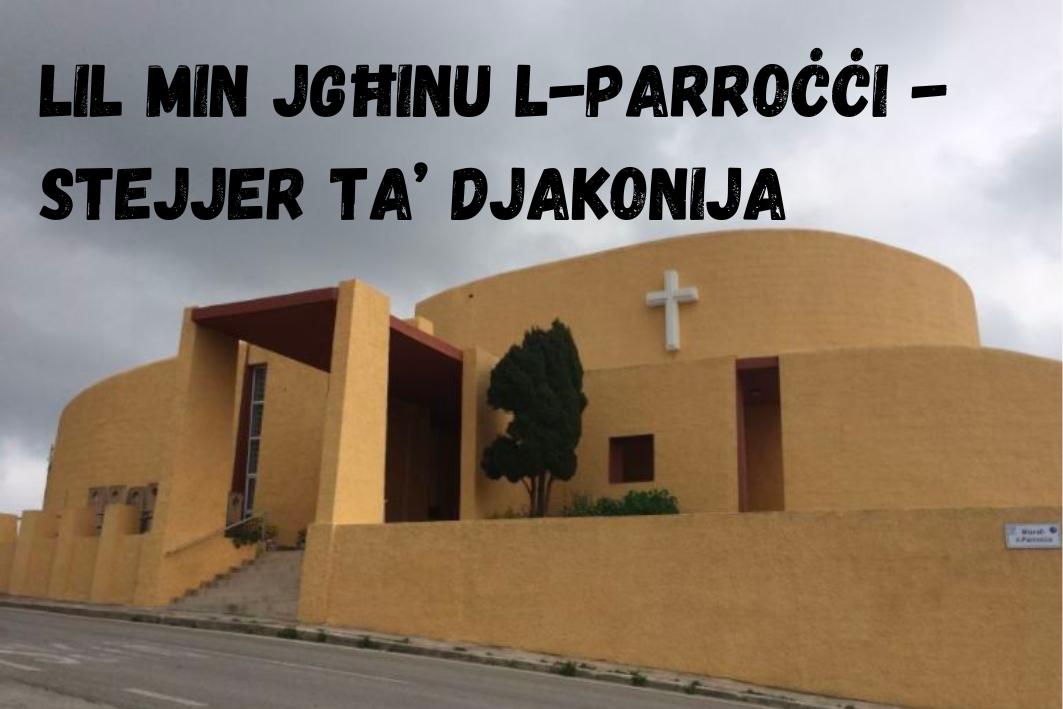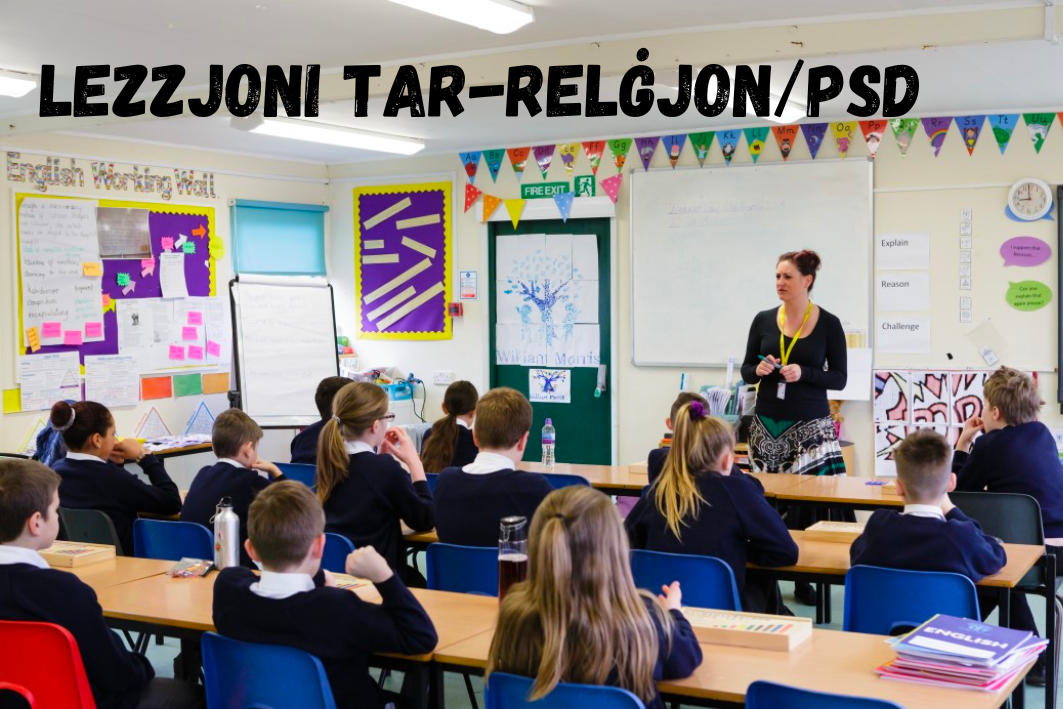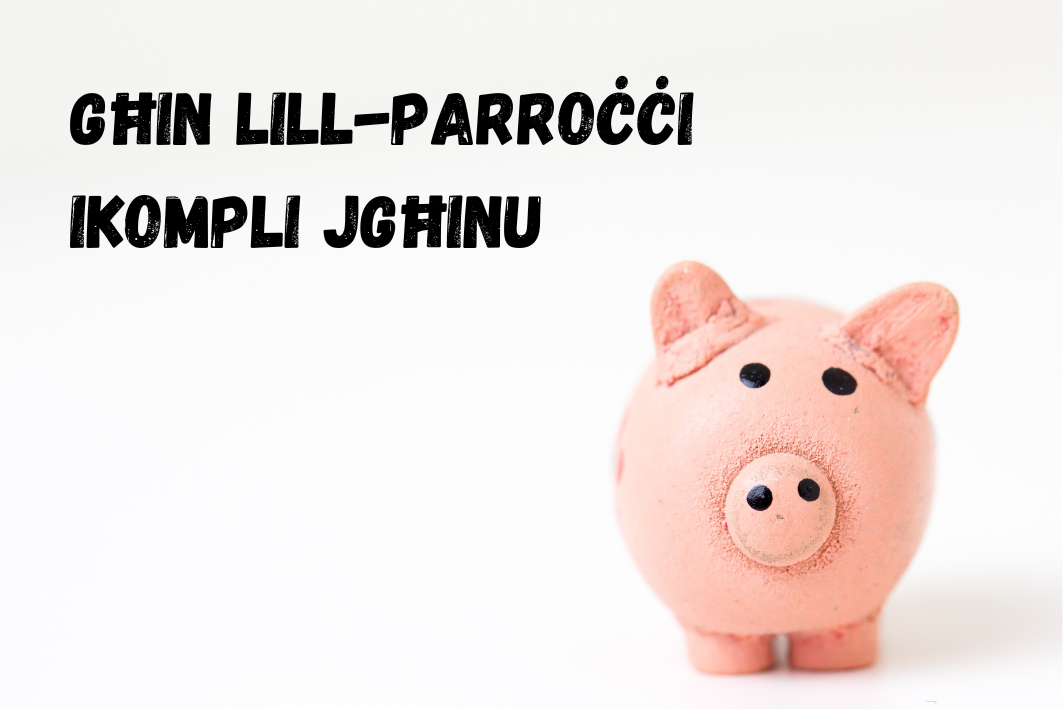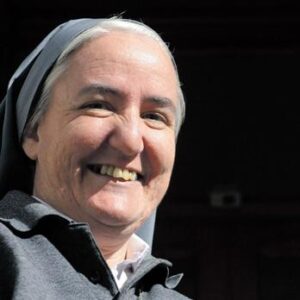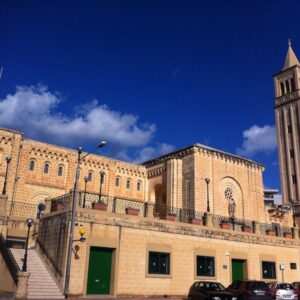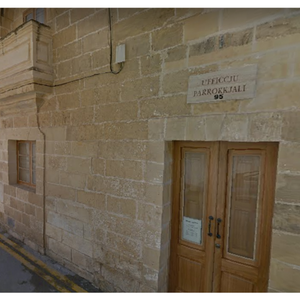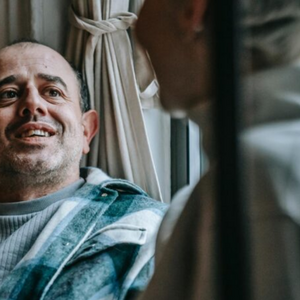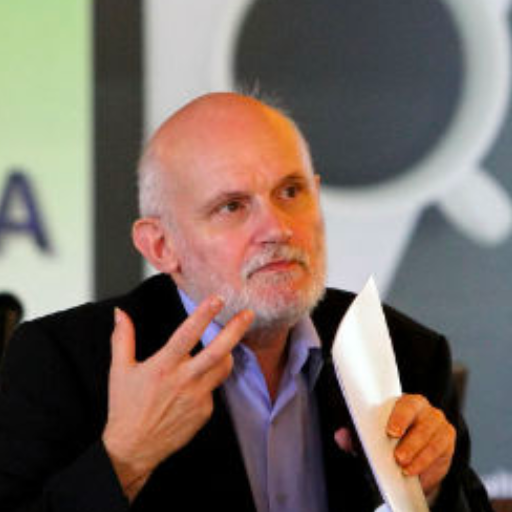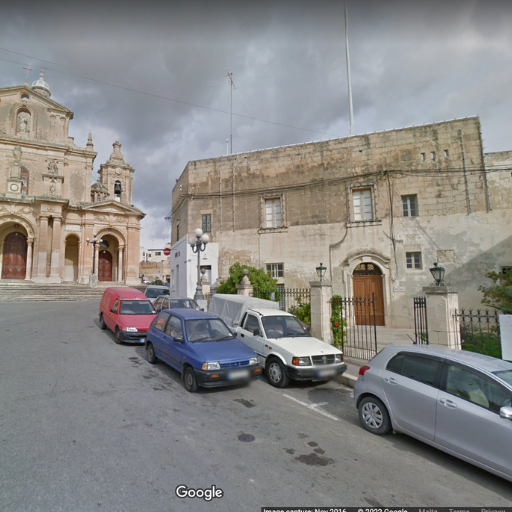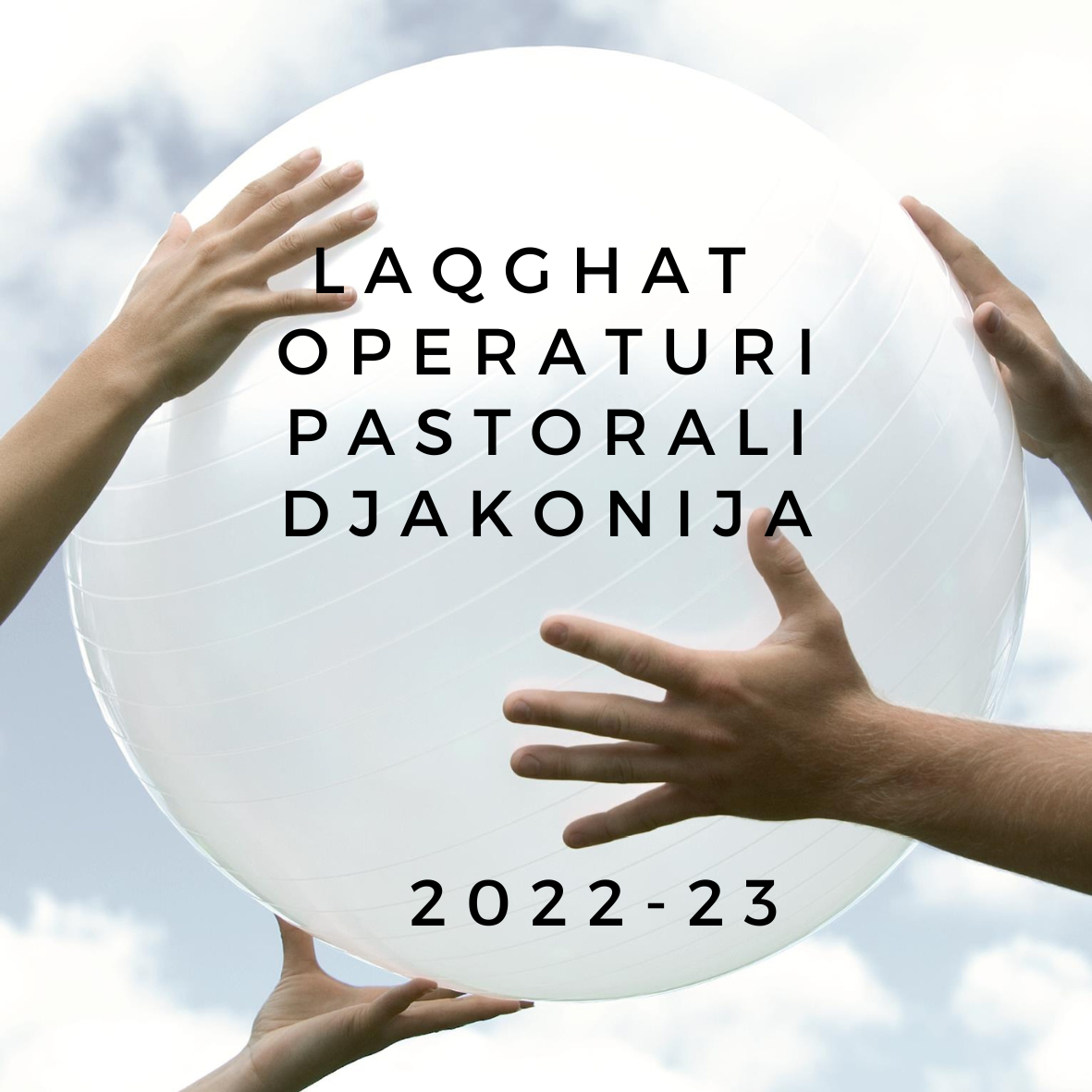The Greek word diakonia means service among others, and has it roots in the Christian scriptures. Deacons carry out all kinds of ministries, often in the areas of education, service, and pastoral care.
Djakonija is thus the term in ecclesial fora to refer to the work of the church that seek to empower and sustain the building of communities based on the values of the gospel.
ministry is also guided by other teachings perhaps primarily the Social Teachings of the Church but also such continuums to them as the papal encyclicals, or which Fratelli Tutti and Laudato Si, are but two examples.
Within the Structure of the Archdiocese of Malta the Archbishop is helped in his ministry by Vicars (ordained) and Delegates (lay). One of the Vicariates is that responsible for djakonija with Mons Charles Cordina being the Vicar for Diaconia.
The Vicariate for Djakonija is mainly responsible for:
Overseeing the operations of diocesan entities related to supporting people in need namely: Dar tal-Providenza, Fondazzjoni Sebh, Caritas, Migrants Commission, and the Church Homes for the Elderly.
Strengthening and Co-ordinating Community based Djakonija – mainly through the 70 parishes of the Diocese.
Provision and Rationalising of resources – Both available and aspired to.
The 10 principles of the Catholic Social Teaching
- Respect for Human Dignity
Human dignity emerges because we are created in the image and likeness of God. Consequently, every person is worthy of respect simply by virtue of being a human being. People do not lose the right to being treated with respect because of disability, poverty, age, lack of success or race, let alone gain the right to be treated with greater respect because of what they own or accomplish.
“A just society can become a reality only when it is based on the respect of the transcendent dignity of the human person. The person represents the ultimate end of society. The social order and its development must invariably work to the benefit of the human person… not the other way around.” —Compendium of the Social Doctrine of the Church, No. 132
- Respect for Human Life
An implication of the first principle is that every person, from the moment of conception to natural death has an inherent dignity and a right to life consistent with the dignity that is ours as human beings. The Catholic tradition sees the sacredness of human life as part of any moral vision for a just and good society.
- Association
The human person is not only sacred, but also social. We cannot consider a person simply as an isolated individual but as part of a rich tapestry of relationships. When making decisions which impact on the lives of others, we must consider how it impacts on that person’s connections with family, friends and the wider community.
“[O]ur tradition proclaims that the person is not only sacred but also social. How we organise our society _ in economics and politics, in law and policy _ directly affects human dignity and the capacity of individuals to grow in community. The centrepiece of society is the family; family stability must always be protected and never undermined. By association with others _ in families and in other social institutions that foster growth, protect dignity and promote the common good _ human persons achieve their fulfilment. “Sharing Catholic Social Teaching: Challenges and Directions _ Reflections of the U.S. Catholic Bishops (Washington, DC: N.C.C.B., June 1998)
- Participation
People have a right to shape their own lives and the society in which they live. They should participate in decision processes which impact on their lives and cannot be consider the passive recipients of other people’s decisions. We each have a responsibility to be shapers of the kind of world in which we wish to live.
The characteristic implication of subsidiarity is participation, which is expressed essentially in a series of activities by means of which the citizen, either as an individual or in association with others, whether directly or through representation, contributes to the cultural, economic, political and social life of a civil community to which he belongs. Participation is a duty to be fulfilled consciously by all, with responsibility and a view to the common good. —Compendium of the Social Doctrine of the Church, No 189
- Solidarity
We are our brothers’ and sisters’ keepers. Learning to practice the virtue of solidarity means learning that ‘loving our neighbour’ is not, in the words of Pope John Paul II, “a feeling of vague compassion or shallow distress at the misfortunes of so many people. On the contrary, it is a firm and persevering determination to commit oneself to the common good; that is to say, to the good of all and of each individual, because we are all really responsible for all.”
[Solidarity] is a word that means much more than some acts of sporadic generosity. It is to think and to act in terms of community, of the priority of the life of all over the appropriation of goods by a few. It is also to fight against the structural causes of poverty, inequality, lack of work, land and housing, the denial of social and labor rights. It is to confront the destructive effects of the empire of money: forced displacements, painful emigrations, the traffic of persons, drugs, war, violence and all those realities that many of you suffer and that we are all called to transform. —Pope Francis, World Meeting of Popular Movements 2014
- Stewards of Creation
We show respect for the Creator by our stewardship of creation. We have a responsibility to care for the world’s goods as stewards and trustees, not primarily, let alone merely, as consumers. As people working toward making these principles a reality, good stewardship also means making careful and responsible decisions with the resources entrusted to us.
The family needs a home, a fit environment in which to develop its proper relationships. For the human family, this home is the earth, the environment that God the Creator has given us to inhabit with creativity and responsibility. We need to care for the environment: it has been entrusted to men and women to be protected and cultivated with responsible freedom, with the good of all as a constant guiding criterion. —Pope Benedict XVI, World Day of Peace 2008, 7
- Subsidiarity
The principle of subsidiarity means clearly determining the right amount of help or support that is needed to accomplish a task or to meet an obligation: “not too much” (taking over and doing it for the other) and “not too little” (watching people thrash about, increasing frustration and hopelessness) . The principle might be better summarised as ‘no bigger than necessary, no smaller than appropriate’.
It is clearly laid down that the paramount task assigned to government officials is that of recognizing, respecting, reconciling, protecting and promoting the rights and duties of citizens. —Saint John XXIII, Pacem in Terris, 77
- Human Equality
Given that every human being is entitled to respect and dignity merely because she/he has been created in the image and likeness of God, it follows that there is a radical equality among all human beings. After all, as George Cladis points out: “competition is alien within God.” This principle lies close to the surface in every person. We talk of it in terms of giving people a fair go.
Global interconnectedness has led to the emergence of a new political power, that of consumers and their associations. This is a phenomenon that needs to be further explored, as it contains positive elements to be encouraged as well as excesses to be avoided. It is good for people to realize that purchasing is always a moral—and not simply economic—act. Hence the consumer has a specific social responsibility, which goes hand-in- hand with the social responsibility of the enterprise… A more incisive role for consumers, as long as they themselves are not manipulated by associations that do not truly represent them, is a desirable element for building economic democracy. —Pope Benedict XVI, Caritas in Veritate 66
- Preferential Option for the Poor & Vulnerable
In a world where we see deepening divisions between rich and poor, the powerful and the powerless, the Catholic tradition reminds us that God stands firmly on the side of the most marginalised members of society. While every person’s needs are important, we must consider first and foremost how the lives of the most vulnerable people are impacted or enhanced by decisions we make.
The needs of the poor take priority over the desires of the rich; the rights of workers over the maximization of profits; the preservation of the environment over uncontrolled industrial expansion; production to meet social needs over production for military purposes. —Saint John Paul II, Address on Christian Unity in a Technological Age, Toronto, 1984
- Common Good
A community is genuinely healthy when every single person is flourishing. This is not the utilitarian formula of the greatest good for the greatest number, but the moral formula of the greatest good for all, simply on the basis that they are human beings and therefore inherently worthy of respect.
We must all consider the good of others, and the good of the whole human family, in organizing our society—economically, politically, and legally. Human Dignity can only be realized and protected through our relationship with society-at-large. We must love our neighbour, locally and globally, and prioritize the good of the human family over commercial interests. “God intended the Earth with everything contained in it for the use of all human beings and peoples. Thus, under the leadership of justice and in the company of charity, created goods should be in abundance for all in like manner.” —Second Vatican Council, Gaudium et Spes, 69





